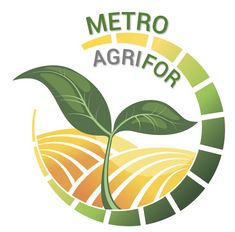MetroAgriFor 2019 Workshop
Remote and proximal sensing techniques are representing an extremely valuable sources of quantitative data for monitoring the most relevant land surface processes, in particular those related to agricultural and forestry systems. This includes the derivation of surface properties of vegetation and soil at various scales of observation, which determine the interaction with electromagnetic radiation. During recent years there has been much progress in understanding land surface-atmosphere processes and their parameterisation in the management of land and water resources. Earth Observations techniques in different regions of the electromagnetic spectrum have been used for about four decades to monitor land surface. Nowadays, the improved technological capability of remote and proximal sensors and platforms, i.e. Copernicus, unmanned aerial vehicles (UAVs) and in-situ spectrometers, together with Big Data analysis provide the opportunity for new observational and modelling perspectives.
Efforts are needed to support the management of agricultural and forestry systems with information and data derived from innovative remote sensing technologies.
This session aims at presenting the innovation of in the fields of acquisition, elaboration and analysis of remote and proximal sensing data for providing quantitative information (“metrics”) in support to the management of land and water resources in agro-forestry, with a focus on Earth Observation platforms of the European Space Agency Copernicus constellation and to the integration with in situ observations.
https://www.metroagrifor.org/special-session-4
Call for papers:
The Conference Program Committee is inviting extended abstracts for the MetroAgriFor 2019 Workshop, 24 – 26 October, 2019.
Interested researchers, academics, practitioners and industry partners are invited to submit extended abstracts for the Workshop. Papers that involve joint authorship with students, industry and community partners are encouraged. Early career researchers and research students are also encouraged to contribute papers.
Accepted papers will be published in the proceedings of the Workshop and the proceedings will be submitted for indexing in the IEEE Xplore Digital Library. IEEE content is indexed by Google and has agreements in place with other publishers and services to include IEEE papers in their online and print indexes. Examples include INSPEC, Thomson Reuters’ Web of Science, Ei Engineering, and Village.

